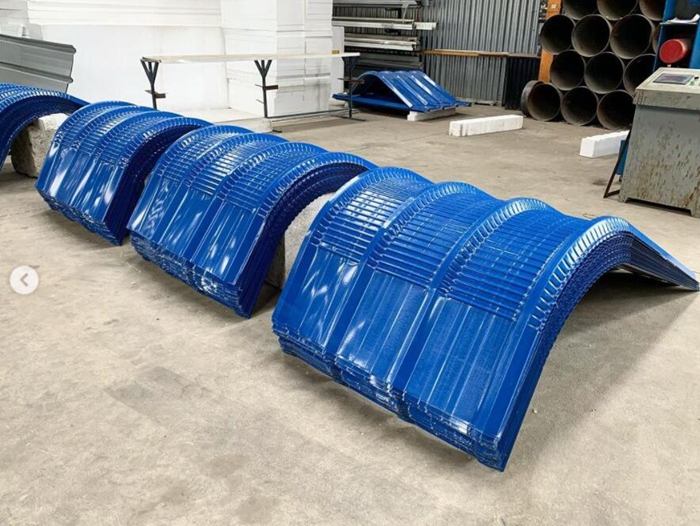custom types of roll forming machine
Exploring Custom Types of Roll Forming Machines
Roll forming is a highly efficient manufacturing process used to shape metal into complex profiles by passing it through a series of contiguous rollers. This technique is extensively utilized across various industries, including construction, automotive, and furniture manufacturing. One of the key advantages of roll forming is the flexibility it offers. Manufacturers can create custom types of roll forming machines tailored to specific applications, improving efficiency and product quality.
Understanding Roll Forming
At its core, roll forming involves feeding a continuous strip of metal through a series of rollers, each designed to incrementally shape the metal into the desired cross-section. The process typically begins with a flat metal sheet, which is gradually transformed into the desired profile as it moves through multiple sets of rollers. This method is particularly advantageous for producing long lengths of identical components, making it ideal for high-volume production.
Customization and Its Importance
The customization of roll forming machines is pivotal in addressing the unique needs of different industries. Off-the-shelf machines may not always meet specific requirements for size, shape, or material type, and this is where custom machines come into play. By designing machines tailored to the specific dimensions and characteristics of the desired end product, manufacturers can enhance production efficiency and reduce waste.
Types of Custom Roll Forming Machines
1. Adjustable Roll Forming Machines These machines are designed with adjustable rollers, allowing operators to easily change the profile configurations without extensive downtime. This can significantly enhance production flexibility, making it easier to switch between different product designs.
custom types of roll forming machine

2. Heavy-Duty Roll Forming Machines For industries that require the processing of thicker materials, heavy-duty roll forming machines provide the necessary strength and durability. These machines are engineered to handle metals with higher tensile strength, ensuring that industries such as construction or automotive can obtain robust profiles.
3. High-Speed Roll Forming Machines Speed is critical in many production environments. High-speed roll forming machines are designed to produce components at a quicker rate without sacrificing quality. These machines often incorporate advanced technology, such as automated feeding and cutting systems, to maximize efficiency.
4. Integrated Roll Forming Systems These systems combine roll forming with other processes, such as welding, punching, or cutting, within the same machinery. This integration streamlines production, reducing the need for multiple machines and minimizing labor costs.
5. Portable Roll Forming Machines For projects requiring on-site production, portable roll forming machines offer a practical solution. These compact units allow for the immediate fabrication of metal profiles, which can be particularly beneficial for construction companies needing custom shapes at the job site.
The Benefits of Custom Roll Forming Machines
Investing in custom roll forming machines brings numerous advantages. Firstly, it allows for greater design freedom. Manufacturers can create unique profiles that meet specific regulatory or aesthetic requirements. Secondly, custom machines tend to be more efficient. By optimizing the machines for a particular product, manufacturers can minimize waste and decrease production times. Lastly, these machines often result in improved product quality, as they can be fine-tuned to ensure precision in every aspect of the manufacturing process.
Conclusion
In conclusion, custom types of roll forming machines are essential for manufacturers looking to optimize production processes across various industries. Their adaptability, efficiency, and ability to produce high-quality components make them invaluable assets in today’s fast-paced manufacturing landscape. As industries continue to evolve, the demand for customized solutions will likely drive further innovations in roll forming technology, paving the way for even more sophisticated and efficient manufacturing techniques. Whether in construction, automotive, or any other sector, the role of custom roll forming machines will continue to be pivotal in meeting the diverse needs of modern manufacturing.
-
Understanding Steel Coil Cutting Machines and Their ImportanceNewsMay.16, 2025
-
The Essential Guide to Floor Deck Roll Forming MachinesNewsMay.16, 2025
-
Slitting Lines and Their BenefitsNewsMay.16, 2025
-
Sheet Metal Slitting Machines and Their OptionsNewsMay.16, 2025
-
Choosing the Best Downpipe Roll Forming MachinesNewsMay.16, 2025
-
5 Inch Gutter Machines: The Key to Efficient Gutter ProductionNewsMay.16, 2025
-
The Latest Trends in Cut to Length Equipment and MachinesNewsMay.09, 2025








